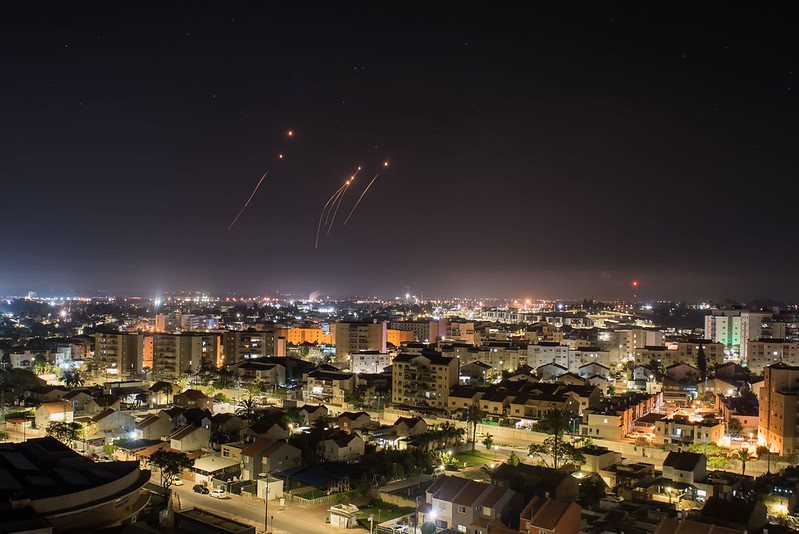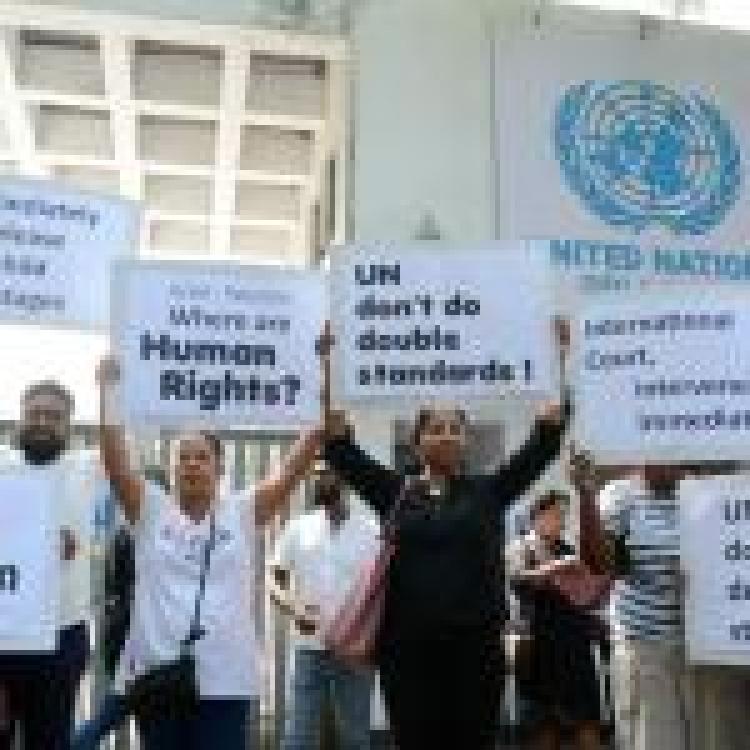
File photograph: Israeli Defense Force, 2021.
Amid the Israeli offensive in Gaza, Sri Lankan migrants working in Israel have chosen to remain in the country and face the possibility of escalating armed conflict rather than return to the island.
According to a spokesperson from the Sri Lanka Foreign Employment Bureau (SLFEB), there are some 8,000 Sri Lankans in Israel at present.
However, whilst other countries have been organising evacuations, there have not been any requests to return from Sri Lankan citizens, confirmed Labour Minister Manusha Nanayakkara. “There is no trend of Sri Lankan workers in Israel coming back to Sri Lanka,” he told reporters.
Despite the escalation in violence, Nimal Bandara, Sri Lanka's Ambassador to Israel, confirmed that they have not received requests for assistance to evacuate Sri Lankans. He said “no one has indicated they want to leave,” reported the Sunday Times.
The lack of appetite to come back to Sri Lanka, despite concern of armed conflict, may be attributed to social safety, welfare, and job opportunities in Sri Lanka itself.
Approximately 90% of Sri Lankans in Israel work as caregivers, and 10% as agricultural workers. They live and work spread across Tel Aviv, Jerusalem, and Haifa. Some 20 Sri Lankans have been reported to be living in the Southern region near the Gaza border. As many as 27 are also thought to be in Gaza and are making their way towards the Egyptian border.
It is not just Sri Lanka’s workers in Israel who seemingly do not want to return to the country however, with those on the island expressing their concern over what may happen to the economy if they were to be evacuated.
Speaking to the Morning, SJB Opposition MP Tissa Attanayake said that if the Sri Lankan migrant workers were to return to Sri Lanka due to the escalation of the Israeli-Hamas conflict, it "would cause an adverse impact on the country's economy since Sri Lanka is to lose millions of remittance monies if the war continues."
Sri Lanka’s economy has been in turmoil, with the country officially defaulting on its international debt in May 2022, amidst the worst island’s economic crisis in generations. Following a staff-level agreement with the International Monetary Fund (IMF) to support economic restructuring, a bailout loan was agreed upon, but recently withheld after an assessment made by the IMF staff that visited the island, the second tranche of the bail-out fund was withheld.
The IMF has said that the expected contraction of real GDP and a shortfall of 15% in venue collection does not reassure Sri Lanka’s growth.
The financial instability has left many struggling to make ends meet with the daily challenges of inflation, unemployment, and reduced access to essential services. Over 300,000 workers labourers to professionals have left Sri Lanka as migrant workers to meet the financial needs of inflation, and escape crippling shortages, increased taxes, and limited opportunities.
For those in Israel, Sri Lanka has offered some assistance, however. The government announced it was giving a total of US $10,000 to the Sri Lankan Embassy in Israel, for “food, medicines and all other facilities” for those in the country.
With over 8,000 Sri Lankans in Israel, that works out to less than $1.25 per person.


